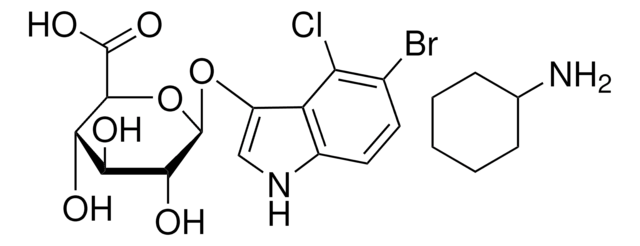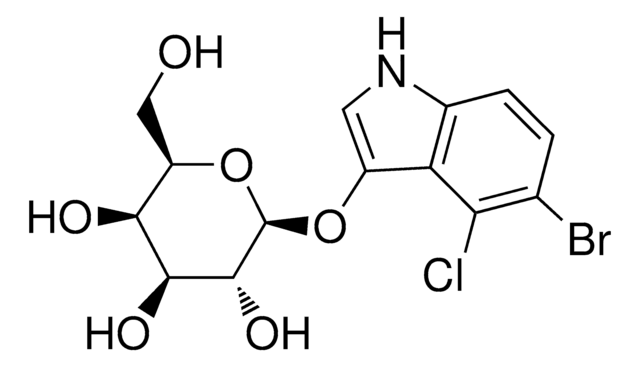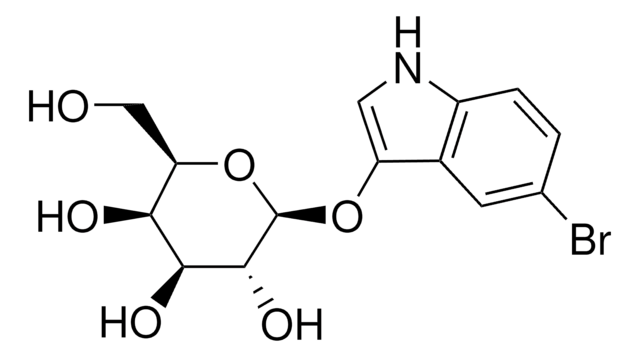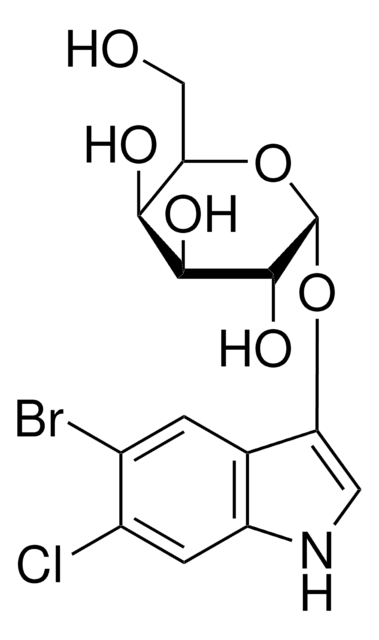B3928
Blue-White Select™ Screening Reagent
for selection of recombinant bacterial clones
Sinónimos:
Blue-White Reagent, Screening Reagent, Selection Reagent
About This Item
Productos recomendados
grade
for molecular biology
Quality Level
form
liquid
usage
sufficient for 125 dishes (90 mm)
technique(s)
nucleic acid detection: suitable
suitability
suitable for nucleic acid staining
shipped in
dry ice
storage temp.
−20°C
General description
Features and Benefits
- Intense color contrast for easy colony selection
- Convenient, ready-to-use solution
Components
40 mg/mL X-Gal
(prepared in DMSO)
Principle
The technique is based on vectors such as the pUC and the M13mp series that carry a fragment of the β-galactosidase gene encoding an a-fragment of β-galactosidase. Exploitation of these vectors requires use of a bacteria strain carrying the complementing gene fragment to allow the assembly of an active complex, resulting in the formation of blue colonies. Disruption of the ß-galactosidase gene by insertion of a DNA fragment into the vector′s multiple cloning site results in the loss of functional β-galactosidase activity; these colonies remain white, allowing for easy differentiation between lac+ and lac- colonies.
Legal Information
Related product
Storage Class
10 - Combustible liquids
wgk_germany
WGK 3
flash_point_f
188.6 °F
flash_point_c
87 °C
ppe
Eyeshields, Gloves, type ABEK (EN14387) respirator filter
Certificados de análisis (COA)
Busque Certificados de análisis (COA) introduciendo el número de lote del producto. Los números de lote se encuentran en la etiqueta del producto después de las palabras «Lot» o «Batch»
¿Ya tiene este producto?
Encuentre la documentación para los productos que ha comprado recientemente en la Biblioteca de documentos.
Nuestro equipo de científicos tiene experiencia en todas las áreas de investigación: Ciencias de la vida, Ciencia de los materiales, Síntesis química, Cromatografía, Analítica y muchas otras.
Póngase en contacto con el Servicio técnico





